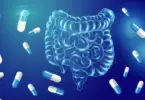Staff Writer for Wake Up World
Sleep is a fundamental biological process essential for health and well-being. It is a critical period of rest and recovery during which the body undergoes various physiological and metabolic processes vital for optimal health. This article explores the science of sleep and the importance of rest and recovery for health and wellness.
Introduction to Sleep
Sleep is a state of altered consciousness during which the body undergoes various physiological and metabolic processes. It is a complex process involving the brain, nervous system, and other organs. The sleep-wake cycle is regulated by a complex interplay of various factors, including circadian rhythms, sleep drive, and environmental cues.
Circadian Rhythms
Circadian rhythms are driven by an internal biological clock located in the hypothalamus’s suprachiasmatic nucleus (SCN). These rhythms regulate various physiological processes in the body, including the sleep-wake cycle, hormone secretion, metabolism, and immune function [1]. Disruption of circadian rhythms, such as through shift work or jet lag, can lead to various health issues, including sleep disorders and metabolic dysfunction. Maintaining a regular sleep schedule and exposure to natural light can help keep circadian rhythms in sync with the environment.
Sleep Drive
Sleep drive is the urge to sleep that increases with the length of time spent awake. It is regulated by a neurochemical called adenosine, which accumulates in the brain during wakefulness and is metabolized during sleep [2]. As adenosine levels build up, the pressure to sleep intensifies, making it easier to fall asleep at night. Caffeine temporarily blocks adenosine receptors, which can reduce sleepiness and delay the onset of sleep.
Environmental Cues
Environmental cues like light and darkness are critical in regulating the sleep-wake cycle. The presence of light inhibits the secretion of melatonin, a hormone that promotes sleep, while darkness stimulates its secretion [3]. Exposure to natural light during the day and minimizing artificial light at night can help regulate melatonin production and improve sleep quality. Blue light from screens can particularly interfere with melatonin secretion, making it harder to fall asleep if used close to bedtime.
Stages of Sleep
Sleep is divided into two main stages: non-REM (NREM) sleep and REM sleep.
NREM Sleep
NREM sleep is the first sleep stage characterized by slow, deep breathing and low brain activity. It is further divided into three stages:
- Stage 1: This is the transition stage between wakefulness and sleep, characterized by drowsiness and relaxation.
- Stage 2: This is a deeper stage of sleep during which brain activity and metabolic rate decrease further.
- Stage 3: This is the deepest stage of sleep, during which the body undergoes various physiological processes, including tissue repair and growth hormone secretion [4].
REM Sleep
REM sleep is the second sleep stage characterized by rapid eye movements and high brain activity. During this stage, the brain consolidates memories and emotions, and dreaming occurs [5]. REM sleep is also crucial for cognitive functions, such as problem-solving and creativity. Additionally, it plays a significant role in emotional regulation and mental health.
Importance of Sleep for Health and Wellness
Sleep is critical for various physiological and psychological processes in the body. Lack of sleep or poor quality sleep can severely affect health and well-being. Some of the important functions of sleep include:
Rest and Recovery
Sleep is a critical period of rest and recovery during which the body undergoes various physiological and metabolic processes, including tissue repair, hormone secretion, and immune function [6]. During deep sleep stages, the body repairs muscles, tissues, and cells, promoting overall physical health. Additionally, adequate sleep enhances athletic performance and reduces the risk of injuries.
Cognitive Function
Sleep is critical for various cognitive functions, including attention, concentration, memory, and learning [7]. During sleep, the brain processes and consolidates information from the day, aiding in memory retention and learning. Lack of sleep impairs problem-solving skills and decision-making abilities, affecting daily performance. As time goes on, the focus on cognitive function is essential, as elderly people can suffer from a decline. Luckily, there are facilities that are there to help people when they require it. Opting for a memory care bedford nh facility, or one similar, can provide a whole host of essential support.
Emotional Regulation
Sleep plays a critical role in emotional regulation and the processing of emotions. Lack of sleep can lead to increased irritability, mood swings, and emotional dysregulation [8]. Chronic sleep deprivation is linked to higher levels of stress, anxiety, and depression, highlighting the importance of sleep for mental health.
Metabolic Function
Sleep is critical for optimal metabolic function, including glucose metabolism, insulin sensitivity, and appetite regulation. Lack of sleep can lead to metabolic dysfunction and an increased risk of obesity, diabetes, and cardiovascular disease [9]. Poor sleep affects the balance of hunger hormones, such as ghrelin and leptin, leading to increased appetite and potential weight gain.
Immune Function
Sleep is critical for immune function and the body’s ability to fight off infections and diseases. Lack of sleep can increase susceptibility to infections and a weakened immune system [10]. Adequate sleep strengthens the body’s defense mechanisms, enhancing the effectiveness of vaccines and reducing the risk of illness.
Consequences of Poor Sleep
Lack of sleep or poor quality sleep can severely affect health and well-being. Some of the consequences of poor sleep include:
- Increased Risk of Chronic Diseases: Poor sleep has been linked to an increased risk of chronic diseases, including obesity, diabetes, cardiovascular disease, and cancer [11].
- Impaired Cognitive Function: Lack of sleep or poor quality sleep can impair cognitive function, including attention, concentration, memory, and learning [12].
- Mood Disorders: Poor sleep has been linked to an increased risk of mood disorders, including depression and anxiety [13].
- Increased Risk of Accidents: Lack of sleep or poor quality sleep can impair reaction time and decision-making, increasing the risk of accidents and injuries [14].
- Decreased Quality of Life: Poor sleep can lead to decreased quality of life, including decreased productivity, decreased social functioning, and decreased overall well-being [15].
Tips for Improving Sleep
Sleep hygiene can help promote better sleep and overall health and well-being. Some tips for improving sleep hygiene include:
- Stick to a Sleep Schedule: Going to bed and waking up simultaneously daily can help regulate the sleep-wake cycle and improve sleep quality.
- Create a Sleep-Conducive Environment: Creating a dark, quiet, and cool environment can help promote better sleep [16].
- Avoid Stimulants: Avoiding stimulants such as caffeine, nicotine, and alcohol can help improve sleep quality [17].
- Limit Screen Time: Limiting screen time before bed can help promote better sleep by reducing exposure to blue light, which can interfere with melatonin secretion [18].
- Relaxation Techniques: Engaging in relaxation techniques such as deep breathing, meditation, and yoga can help promote better sleep by reducing stress and anxiety [19].
Conclusion
Sleep is a critical component of health and well-being. It is a complex process essential for various physiological and psychological bodily processes. Lack of sleep or poor quality sleep can have severe consequences for health and well-being, including an increased risk of chronic diseases, impaired cognitive function, mood disorders, and decreased quality of life. Sleep hygiene can help promote better sleep and overall health and well-being.
Article References
- Hastings, M. H., Reddy, A. B., & Maywood, E. S. (2003). A clockwork web: Circadian timing in brain and periphery, in health and disease. Nature Reviews Neuroscience, 4(8), 649-661. https://doi.org/10.1038/nrn1177
- Porkka-Heiskanen, T., Strecker, R. E., Thakkar, M., Bjorkum, A. A., Greene, R. W., & McCarley, R. W. (1997). Adenosine: A mediator of the sleep-inducing effects of prolonged wakefulness. Science, 276(5316), 1265-1268. https://doi.org/10.1126/science.276.5316.1265
- Cajochen, C., Kräuchi, K., & Wirz-Justice, A. (2003). Role of melatonin in the regulation of human circadian rhythms and sleep. Journal of Neuroendocrinology, 15(4), 432-437. https://doi.org/10.1046/j.1365-2826.2003.00989.x
- Siegel, J. M. (2005). Clues to the functions of mammalian sleep. Nature, 437(7063), 1264-1271. https://doi.org/10.1038/nature04285
- Walker, M. P., & Stickgold, R. (2004). Sleep-dependent learning and memory consolidation. Neuron, 44(1), 121-133. https://doi.org/10.1016/j.neuron.2004.08.031
- Datta, S. (2006). Cellular and chemical neuroscience of mammalian sleep. Sleep Medicine, 7(1), 3-7. https://doi.org/10.1016/j.sleep.2005.10.002
- Diekelmann, S., & Born, J. (2010). The memory function of sleep. Nature Reviews Neuroscience, 11(2), 114-126. https://doi.org/10.1038/nrn2762
- Yoo, S. S., Gujar, N., Hu, P., Jolesz, F. A., & Walker, M. P. (2007). The human emotional brain without sleep—a prefrontal amygdala disconnect. Current Biology, 17(20), R877-R878. https://doi.org/10.1016/j.cub.2007.08.007
- Spiegel, K., Leproult, R., & Van Cauter, E. (1999). Impact of sleep debt on metabolic and endocrine function. The Lancet, 354(9188), 1435-1439. https://doi.org/10.1016/S0140-6736(99)01376-8
- Besedovsky, L., Lange, T., & Born, J. (2012). Sleep and immune function. Pflügers Archiv – European Journal of Physiology, 463(1), 121-137. https://doi.org/10.1007/s00424-011-1044-0
- Cappuccio, F. P., D’Elia, L., Strazzullo, P., & Miller, M. A. (2010). Sleep duration and all-cause mortality: A systematic review and meta-analysis of prospective studies. Sleep, 33(5), 585-592. https://doi.org/10.1093/sleep/33.5.585
- Horne, J. A., & Reyner, L. A. (1995). Sleep related vehicle accidents. BMJ, 310(6979), 565-567. https://doi.org/10.1136/bmj.310.6979.565
- Baglioni, C., Battagliese, G., Feige, B., Spiegelhalder, K., Nissen, C., Voderholzer, U., … & Riemann, D. (2011). Insomnia as a predictor of depression: A meta-analytic evaluation of longitudinal epidemiological studies. Journal of Affective Disorders, 135(1-3), 10-19. https://doi.org/10.1016/j.jad.2011.01.011
- Killgore, W. D. S. (2010). Effects of sleep deprivation on cognition. Progress in Brain Research, 185, 105-129. https://doi.org/10.1016/B978-0-444-53702-7.00007-5
- Pilcher, J. J., Ginter, D. R., & Sadowsky, B. (1997). Sleep quality versus sleep quantity: Relationships between sleep and measures of health, well-being and sleepiness in college students. Journal of Psychosomatic Research, 42(6), 583-596. https://doi.org/10.1016/S0022-3999(97)00004-4
- Dautovich, N. D., McNamara, J. P. H., Williams, J. L., & McCrae, C. S. (2014). Tackling sleeplessness: Psychological treatment options for insomnia in older adults. Nature and Science of Sleep, 6, 25-40. https://pubmed.ncbi.nlm.nih.gov/23616696/
- Roehrs, T., & Roth, T. (2008). Caffeine: Sleep and daytime sleepiness. Sleep Medicine Reviews, 12(2), 153-162. https://doi.org/10.1016/j.smrv.2007.07.004
- Chang, A. M., Aeschbach, D., Duffy, J. F., & Czeisler, C. A. (2015). Evening use of light-emitting eReaders negatively affects sleep, circadian timing, and next-morning alertness. Proceedings of the National Academy of Sciences, 112(4), 1232-1237. https://doi.org/10.1073/pnas.1418490112
- Manzoni, G. M., Pagnini, F., Castelnuovo, G., & Molinari, E. (2008). Relaxation training for anxiety: A ten-years systematic review with meta-analysis. BMC Psychiatry, 8, 41. https://doi.org/10.1186/1471-244X-8-41
About the Author
Lily Anderson is an enthusiastic writer and curious investigator of the latest scientific developments. Driven by a strong desire to learn, she has a knack for simplifying complex concepts into engaging stories, making science accessible and interesting to a broad audience. Lily’s work is important for connecting specialists with the general public, sparking wonder and fostering meaningful conversations about new scientific discoveries.
If You Could Align Your Work with Your Purpose—Would You?
Most people think they must choose between meaning and money—but what if you didn’t?
How open-minded would you be about a business that pays you well—without selling your soul to the system?
This isn’t just another online opportunity. It’s a plug-and-play system that lets you:
- Earn high-ticket commissions (57%+)—without the tech headaches
- Have your first $100K in sales closed for you by our expert team
- Build wealth in a way that aligns with your values, not against them
Most people will ignore this and stay stuck. But you? You’re not like most people!
Click here to watch the free masterclass now.
If you’ve found value in our articles, we invite you to support the release of our brand-new book, “Gratitude Practices for Kids: A Practical Guide for Adults to Instill a Spirit of Appreciation and Positivity in the Next Generation.“
“Gratitude Practices for Kids” brings together over 25 innovative and accessible practices designed to enhance gratitude in everyday life. This comprehensive guide is backed by 17 scientific studies, ensuring each concept is grounded in research, underscoring our commitment to nurturing growth, emotional intelligence, and positive interactions between adults and children.
We encourage you to opt for the paperback version to celebrate this new release. Dive into its fresh pages away from digital distractions, allowing you to immerse yourself in the transformative practices it offers.
Over recent years, Wake Up World has faced significant online censorship, which has impacted our financial ability to operate. Moving into book publishing represents a strategic step to secure the ongoing funds needed to continue our mission. By purchasing Gratitude for Kids, you help us keep our content free and accessible to everyone, avoiding needing a paywall. With over 8,500 articles published in the last 13 years, we remain dedicated to keeping our valuable content open to all.










